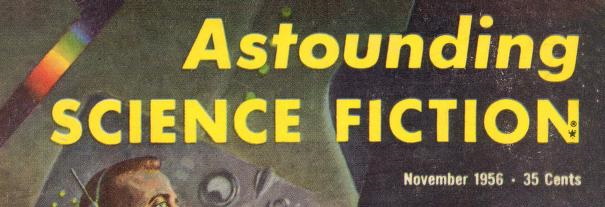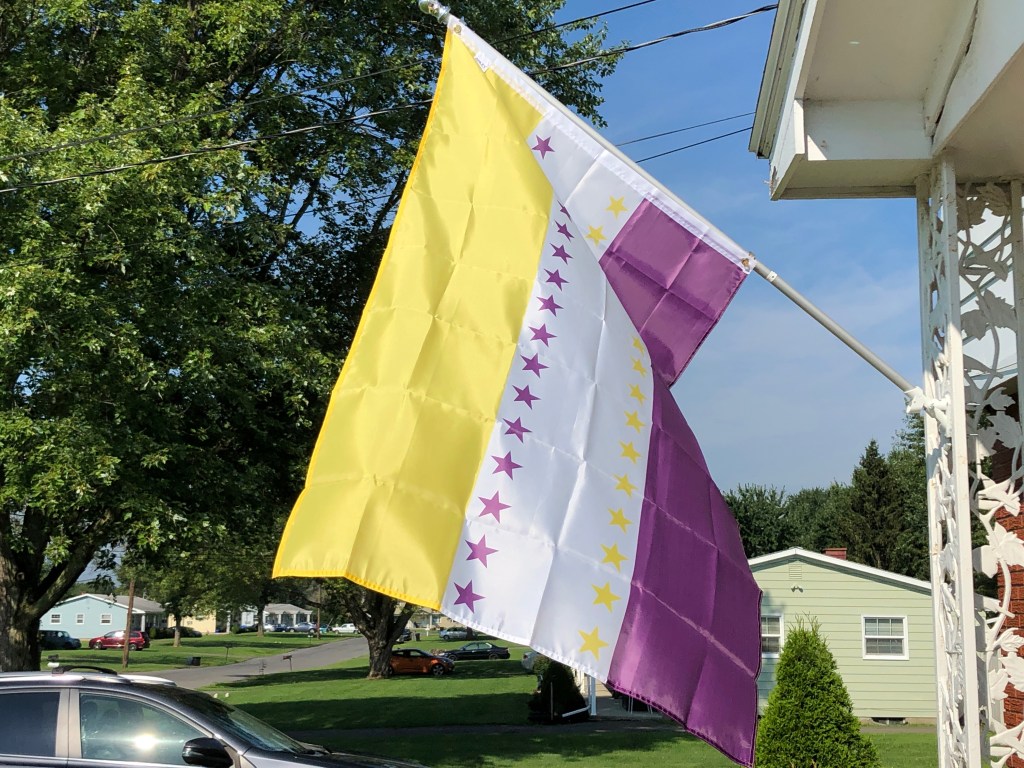Is it a Crime for a U.S. Citizen to Vote?
Friends and fellow citizens: I stand before you tonight under indictment for the alleged crime of having voted at the last presidential election, without having a lawful right to vote. It shall be my work this evening to prove to you that in thus doing, I not only committed no crime but, instead, simply exercised my citizen’s rights, guaranteed to me and all United States citizens by the National Constitution, beyond the power of any State to deny.
Our democratic-republican government is based on the idea of the natural right of every individual member thereof to a voice and a vote in making and executing the laws. We assert the province of government to be to secure the people in the enjoyment of their inalienable rights. We throw to the winds the old dogma that governments can give rights. No one denies that before governments were organized each individual possessed the right to protect his own life, liberty, and property. When 100 to 1,000,000 people enter into a free government, they do not barter away their natural rights; they simply pledge themselves to protect each other in the enjoyment of them through prescribed judicial and legislative tribunals. They agree to abandon the methods of brute force in the adjustment of their differences and adopt those of civilization.
Nor can you find a word in any of the grand documents left us by the fathers that assumes for government the power to create or to confer rights. The Declaration of Independence, the United States Constitution, the constitutions of the several States and the organic laws of the Territories, all alike propose to protect the people in the exercise of their God-given rights. Not one of them pretends to bestow rights.
“All men are created equal, and endowed by their Creator with certain inalienable rights. Among these are life, liberty and the pursuit of happiness. To secure these, governments are instituted among men, deriving their just powers from the consent of the governed.”
Here is no shadow of government authority over rights, or exclusion of any class from their full and equal enjoyment. Here is pronounced the right of all men, and “consequently,” as the Quaker preacher said, “of all women,” to a voice in the government. And here, in this first paragraph of the Declaration, is the assertion of the natural right of all to the ballot; for how can “the consent of the governed” be given, if the right to vote be denied? The women, dissatisfied as they are with this form of government, that enforces taxation without representation – that compels them to obey laws to which they have never given their consent – that imprisons and hangs them without a trial by a jury of their peers – that robs them, in marriage, of the custody of their own persons, wages and children – are this half of the people who are left wholly at the mercy of the other half, in direct violation of the spirit and the letter of the declarations of the framers of this government, every one of which was based on the immutable principles of equal rights to all. By these declarations, kings, popes, priests, aristocrats, all were alike dethroned and placed on a common level, politically, with the lowliest born subject or serf. By them, too, men. as such, were deprived of their divine right to rule and placed on a political level with women. By the practice of these declarations all class and caste distinctions would be abolished, and slave, serf, plebeian, wife, woman, all alike rise from their subject position to the broader platform of equality.
The preamble of the Federal Constitution says:
We, the people of the United States, in order to form a more perfect union, establish justice, insure domestic tranquility, provide for the common defense, promote the general welfare, and secure the blessings of liberty to ourselves and our posterity, do ordain and establish this Constitution for the United States of America.
It was we, the people; not we, the white male citizens; nor we, the male citizens; but we, the whole people, who formed the Union. And we formed it, not to give the blessings of liberty, but to secure them; not to the half of ourselves and the half of our posterity, but to the whole people – women as well as men. And it is a downright mockery to talk to women of their enjoyment of the blessings of liberty while they are denied the use of the only means of securing them provided by this democratic-republican government – the ballot.
The early journals of Congress show that, when the committee reported to that body the original articles of confederation, the very first one which became the subject of discussion was that respecting the equality of suffrage . . .
James Madison said:
Under every view of the subject, it seems indispensable that the mass of the citizens should not be without a voice in making the laws which they are to obey, and in choosing the magistrates who are to administer them . . . Let it be remembered, finally, that it has ever been the pride and the boast of America that the rights for which she contended were the rights of human nature.
These assertions by the framers of the United States Constitution of the equal and natural right of all the people to a voice in the government, have been affirmed and reaffirmed by the leading statesmen of the nation throughout the entire history of our government. Thaddeus Stevens, of Pennsylvania, said in 1866:
I have made up my mind that the elective franchise is one of the inalienable rights meant to be secured by the Declaration of Independence.” . . .
Charles Sumner, in his brave protests against the Fourteenth and Fifteenth Amendments, insisted that so soon as by the Thirteenth Amendment the slaves became free men, the original powers of the United States Constitution guaranteed to them equal rights – the right to vote and to be voted for . . .
The preamble of the constitution of the State of New York declares the same purposes. It says: “We the people of the State of New York, grateful to Almighty God for our freedom, in order to secure its blessings, do establish this constitution.” Here is not the slightest intimation either of receiving freedom from the United States Constitution or of the State’s conferring the blessings of liberty upon the people; and the same is true of every other State constitution. Each and all declare rights God-given, and that to secure the people in the enjoyment of their inalienable rights is their one and only object in ordaining and establishing government. All of the State constitutions are equally emphatic in their recognition of the ballot as the means of securing the people in the enjoyment of these rights . . .
I submit that in the view of the explicit assertions of the equal right of the whole people, both in the preamble and previous article of the constitution, this omission of the adjective “female” should not be construed into a denial; but instead should be considered as of no effect . . . No barriers whatever stand today between women and the exercise of their right to vote save those of precedent and prejudice, which refuse to expunge the word “male” from the constitution.
. . . When, in 1871, I asked that senator to declare the power of the United States Constitution to protect women in their right to vote – as he had done for black men – he handed me a copy of all his speeches during that reconstruction period, and said:
Put “sex” where I have “race” or “color,” and you have here the best and strongest argument I can make for woman. There is not a doubt but women have the constitutional right to vote, and I will never vote for a Sixteenth Amendment to guarantee it to them. I voted for both the Fourteenth and Fifteenth under protest; would have insisted that the power of the original Constitution to protect all citizens in the equal enjoyment of their rights should have been vindicated through the courts. But the newly-made freedmen had neither the intelligence, wealth nor time to await that slow process. Women do possess all these in an eminent degree, and I insist that they shall appeal to the courts, and through them establish the powers of our American magna charta to protect every citizen of the republic.
But, friends, when in accordance with Senator Sumner’s counsel I went to the ballot box last November, and exercised my citizen’s right to vote, the courts did not wait for me to appeal to them – they appealed to me, and indicted me on the charge of having voted illegally. Putting sex where he did color, Senator Sumner would have said:
Qualifications can be in their nature permanent or insurmountable. Sex can not be a qualification any more than size, race, color or previous condition of servitude. A permanent or insurmountable qualification is equivalent to a deprivation of the suffrage. In other words, it is the tyranny of taxation without representation, against which our Revolutionary mothers, as well as fathers, rebelled.
For any State to make sex a qualification, which must ever result in the disfranchisement of one entire half of the people, is to pass a bill of attainder, an ex post facto law, and is, therefore, a violation of the supreme law of the land. By it, the blessings of liberty are forever withheld from women and their female posterity. For them, this government has no just powers derived from the consent of the governed. For them this government is not a democracy; it is not a republic. It is the most odious aristocracy ever established on the face of the globe. An oligarchy of wealth, where the rich govern the poor; an oligarchy of learning, where the educated govern the ignorant; or even an oligarchy of race, where the Saxon rules the African, might be endured; but this oligarchy of sex which makes father, brothers, husband, sons, the oligarchs over the mother and sisters, the wife and daughters of every household; which ordains all men sovereigns, all women subjects – carries discord and rebellion into every home of the nation. This most odious aristocracy exists, too, in the face of Section 4, Article IV, which says: “The United States shall guarantee to every State in the Union a republican form of government.” . . .
It is urged that the use of the masculine pronouns he, his and him in all the constitutions and laws, is proof that only men were meant to be included in their provisions. If you insist on this version of the letter of the law, we shall insist that you be consistent and accept the other horn of the dilemma, which would compel you to exempt women from taxation for the support of the government and from penalties for the violation of laws. There is no she or her or hers in the tax laws, and this is equally true of all the criminal laws.
Take for example the civil rights law which I am charged with having violated; not only are all the pronouns in it masculine, but everybody knows that it was intended expressly to hinder the rebel men from voting. It reads, “If any person shall knowingly vote without his having a lawful right.” . . . I insist if government officials may thus manipulate the pronouns to tax, fine, imprison and hang women, it is their duty to thus change them in order to protect us in our right to vote . . .
Though the words persons, people, inhabitants, electors, citizens, are all used indiscriminately in the national and state constitutions, there was always a conflict of opinion, prior to the war, as to whether they were synonymous terms, but whatever room there was for doubt, under the old regime, the adoption of the Fourteenth amendment settled that question forever in its first sentence:
All persons born or naturalized in the United States, and subject to the jurisdiction thereof, are citizens of the United States, and of the State wherein they reside.
The second settles the equal status of all citizens:
No State shall make or enforce any law which shall abridge the privileges or immunities of citizens of the United States; nor shall any State deprive any person of life, liberty or property without due process of law, or deny to any person within its jurisdiction the equal protection of the laws.
The only question left to be settled now is: Are women persons? I scarcely believe any of our opponents will have the hardihood to say they are not. Being persons, then, women are citizens, and no State has a right to make any new law or to enforce any old law, which shall abridge their privileges or immunities. Hence, every discrimination against women in the constitutions and laws of the several States is today null and void, precisely as is everyone against negroes.































